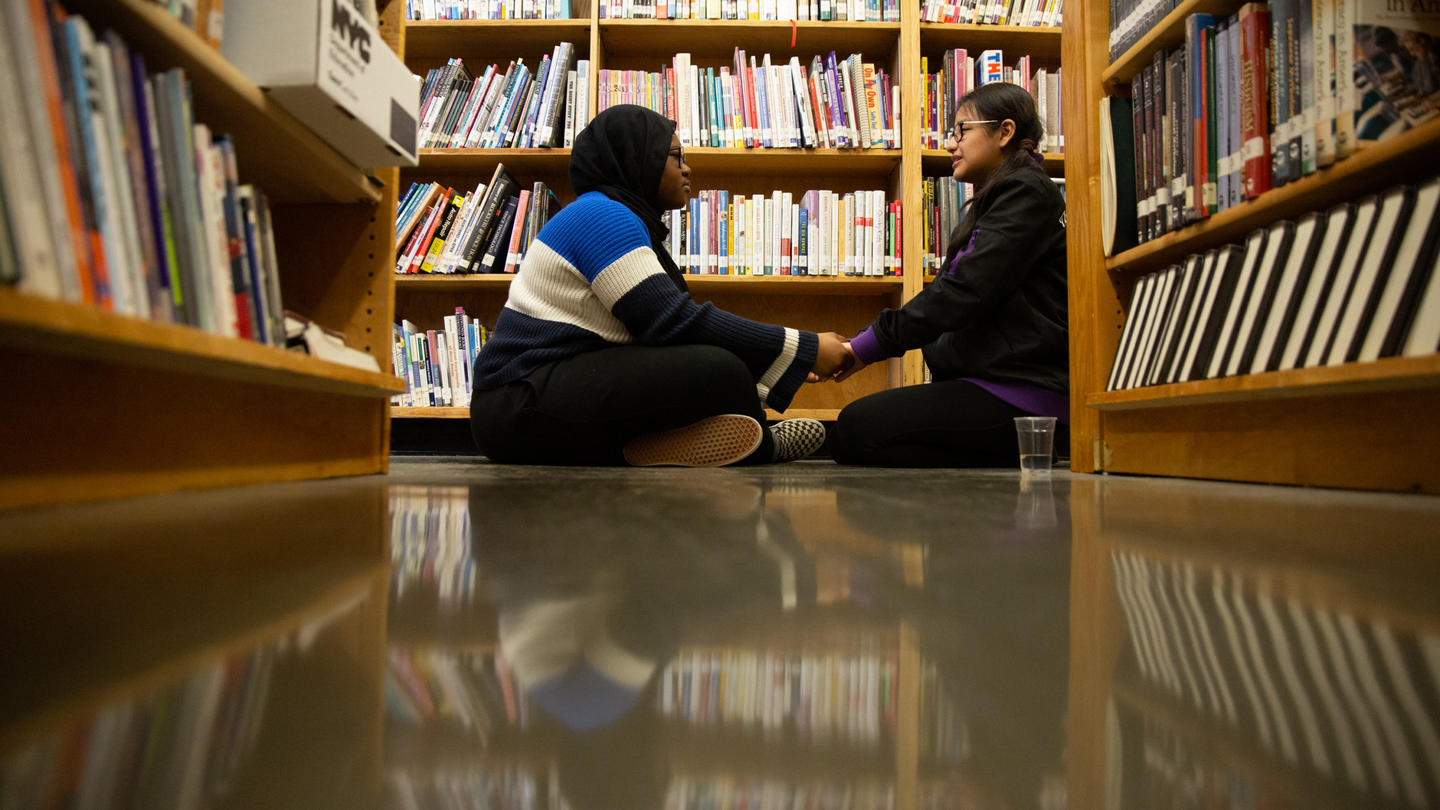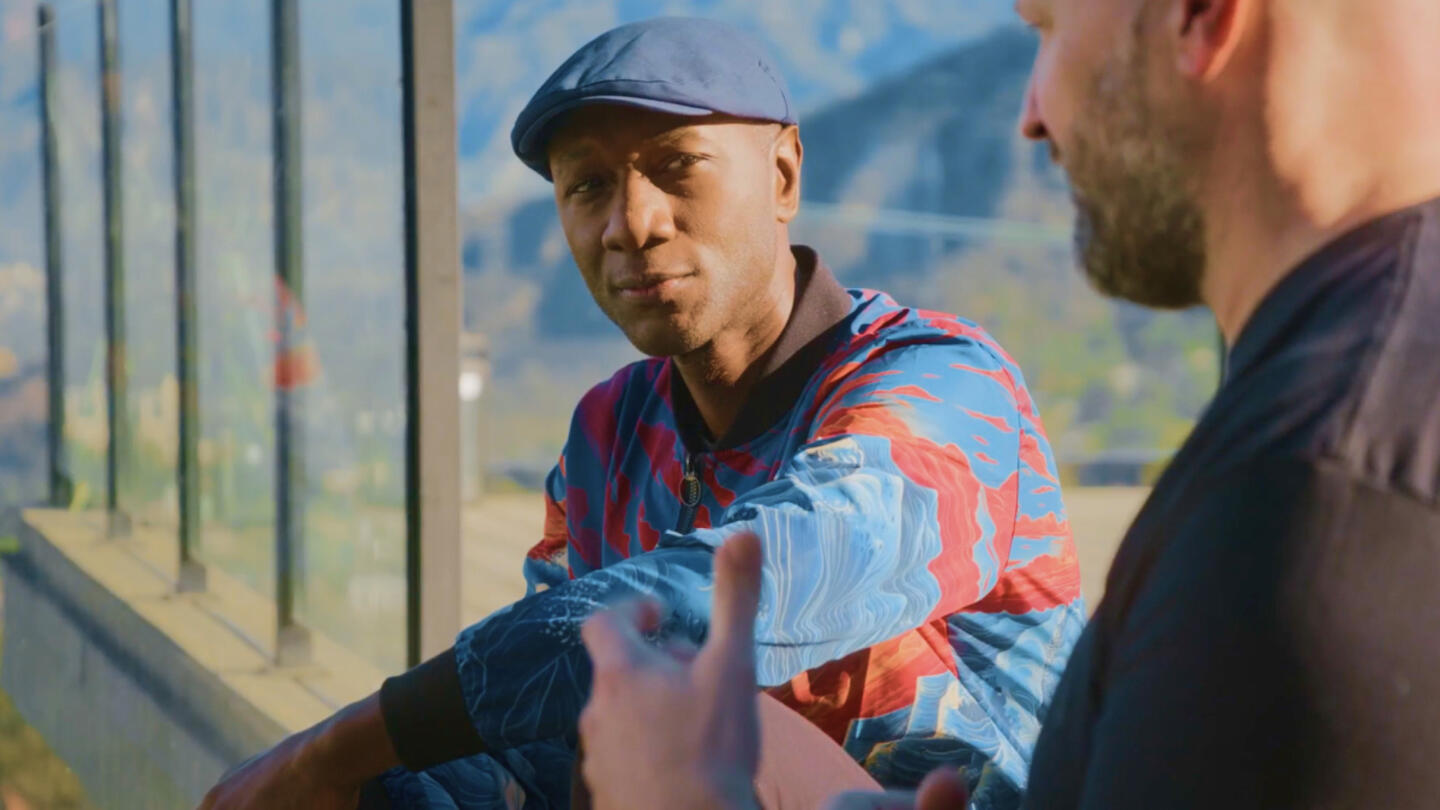Can you build empathy in a virtual world? Empathy is perhaps the most elusive human emotion. Feeling and experiencing the feelings of others requires a stronger connection than can be achieved through a computer screen. Doesn't it?
It's a question that the Irish author Colum McCann has worked throughout his career to answer. The winner of the National Book Award for his 2009 novel Let the Great World Spin, now believes so strongly in its power that he co-founded Narrative 4, a global education initiative with the mission to use storytelling to build a world in which young adults can harness the power of empathy to create connection and tangible change.
He built his latest novel, Apeirogon, around this very concept. In its pages, Colum tells a story of grief and forgiveness through the true stories of Rami Elhanan and Bassam Aramin, two fathers on opposite sides of the Israeli-Palestinian conflict who are bonded in an unimaginable way: Each of them lost a young daughter to senseless acts of violence.
During the summer of the COVID-19 pandemic, the three men tested the concept of virtual empathy in an online discussion of their experience and of Colum's new book. Sponsored by Narrative 4, the session, the first of Narrative 4's "Summer of Impact" online offerings, attracted a virtual audience from around the globe and was led by two Narrative 4 student ambassadors: Malak Lahham in Nazareth, Israel, and Sinead O'Reilly in Wexford, Ireland.
"We want to spread this same message around the world," said Bassam, whose daughter Abir was 10 years old when she was killed by a rubber bullet fired by Israeli border troops. "Our message is universal. When you allow yourself to understand the other, the enemy, then you allow yourself to see yourself."
Rami was no less passionate.
"I was not always what I am today," said Rami, an Israeli who fought in the 1973 war against the Arab States. "I was one of the great cynics, maybe the utmost cynical person on Earth."
In 1997, Rami's daughter, Smadar, was killed by a suicide bomber while on a shopping trip in Jerusalem. She was buying books for the new school year. She was 14 years old.
Smadar's death broke his heart — and eventually, it also broke his cynicism. A year after Smadar's death, Rami attended a meeting of the Parents Circle for the first time. Started in 1995, the Parents Circle - Families Forum is for families who have lost an immediate family member to the decades-long conflict.
More than 600 families belong to the joint Israeli-Palestinian organization. The group calls itself "the only association in the world that does not want to welcome any new members into its fold."
Before his first Parents Circle meeting, Rami recalls, "the other side was hidden from me."
But afterwards, he said, "For the first time in my life — and I was 47 years old at the time — I was seeing Palestinians as human beings."
Bassam's tale is no less dramatic. At 17, he was sent to prison for helping plan an attack on Israeli troops. While there, he bonded with the Israeli guards, and in 2005, a few years after his release, he helped found Combatants for Peace, a joint Israeli-Palestinian coalition that wants bloodless resolution in the region.
His daughter was killed two years later, but Bassam's commitment to seeking a peaceful solution endured through his own tragedy. He credits education as the catalyst for his change.
"I don't call it a transformation," Bassam said. "It was a very difficult experience. It starts and ends with education. I believe if you know more, you act better."
Now, Rami and Bassam work together to tell their story to audiences around the world. During the talk, Colum recalled meeting the two of them at a town near Bethlehem. When he heard their story, he said his heart was "blown completely wide open."
The story of their friendship and shared bond fits perfectly into the Narrative 4 mission. In fact, Colum calls Apeirogon "a Narrative 4 novel."
"We need to know each other," Colum said. "That's the message that is inherent in everything we do at Narrative 4. Get people to step into each other's shoes, and then turn that empathy into action on the ground."
"Pain is motivation," Bassam said, "to be angry, to take revenge, or to be a peacemaker. Because we love our kids, we don't want to take revenge. If you think to take revenge, you need to prepare yourself for another bereavement."
Rami praised Colum. "The power of art is tremendous. Look at you and your book," he said. "It's a living message that opens a little crack in the walls … through the cracks a little light comes in and we can drive away the darkness."
The session included performances by Irish violinist Colm Mac Con Iomaire, who played an original composition inspired by Apeirogon. By the time Bassam recited "Think of Others," by the by the Palestinian poet Mahmoud, any question of whether empathy could be fostered in a virtual world had long been put to rest.
"If you feel your pain, it's a sign that you are alive," said Rami. "If you feel the pain of others, it's a sign that you are a human being."
Colum hopes Narrative 4's summer programming will bring together a worldwide community around the story of Rami and Bassam, and the healing power of empathy.
"We will tell the stories over and over and over again," the author promised, "and one day that crack that we put in the wall, not only will let the light in, but it will make that wall fall."
Narrative 4 is supported by Stand Together Trust, which provides funding and strategic capabilities to innovators, scholars, and social entrepreneurs to develop new and better ways to tackle America’s biggest problems.
Learn more about Stand Together's efforts to build strong and safe communities, and explore ways you can partner with us.




